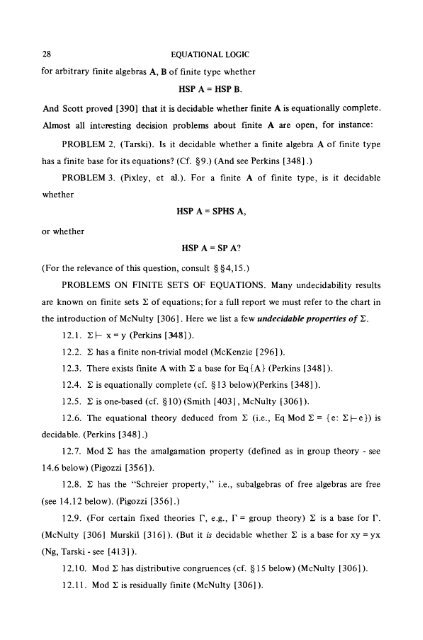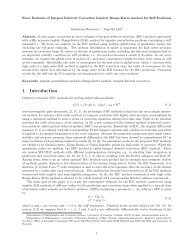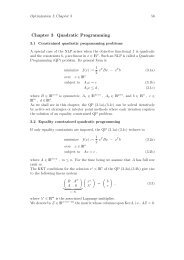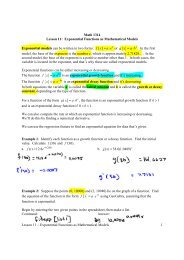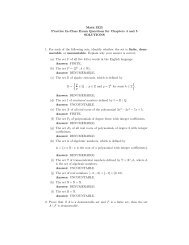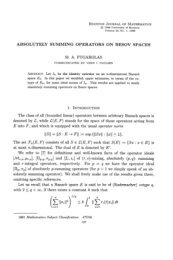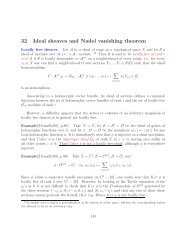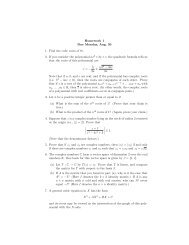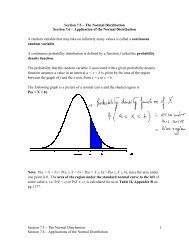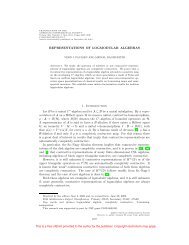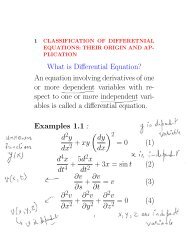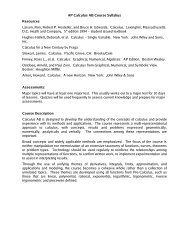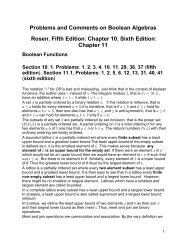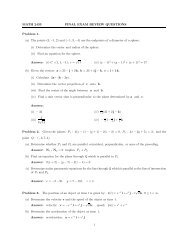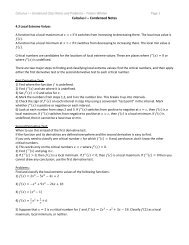Survey 1979: Equational Logic - Department of Mathematics ...
Survey 1979: Equational Logic - Department of Mathematics ...
Survey 1979: Equational Logic - Department of Mathematics ...
Create successful ePaper yourself
Turn your PDF publications into a flip-book with our unique Google optimized e-Paper software.
28 EQUATIONAL LOGIC<br />
for arbitrary finite algebras A, B <strong>of</strong> finite type whether<br />
HSP A = HSP B.<br />
And Scott proved [390] that it is decidable whether finite A is equationally complete.<br />
Almost all interesting decision problems about finite A are open, for instance:<br />
PROBLEM 2. (Tarski). Is it decidable whether a finite algebra A <strong>of</strong> finite type<br />
has a finite base for its equations? (Cf. 89.) (And see Perkins [348] .)<br />
whether<br />
or whether<br />
PROBLEM 3. (Pixley, et al.). For a finite A <strong>of</strong> finite type, is it decidable<br />
HSP A = SPHS A,<br />
HSP A = SP A?<br />
(For the relevance <strong>of</strong> this question, consult õ 84,15.)<br />
PROBLEMS ON FINITE SETS OF EQUATIONS. Many undecidability results<br />
are known on finite sets ; <strong>of</strong> equations; for a full report we must refer to the chart in<br />
the introduction <strong>of</strong> McNulty [306]. Here we list a few undecidable properties <strong>of</strong> .<br />
12.1. ;« x=y(Perkins[348]).<br />
12.2. ; has a finite non-trivial model (McKenzie [296] ).<br />
12.3. There exists finite A with ; a base for Eq{A) (Perkins [348] ).<br />
12.4. ; is equationally complete (cf. 813 below)(Perkins [348] ).<br />
12.5. ; is one-based (cf. 810) (Smith [403], McNulty [306]).<br />
12.6. The equational theory deduced from ; (i.e., Eq Mod 2 = {e: ;«e}) is<br />
decidable. (Perkins [348 ] .)<br />
12.7. Mod 2 has the amalgamation property (defined as in group theory -see<br />
14.6 below) (Pigozzi [356] ).<br />
12.8. ; has the "Schreier property," i.e., subalgebras <strong>of</strong> free algebras are free<br />
(see 14.12 below). (Pigozzi [356].)<br />
12.9. (For certain fixed theories F, e.g., F = group theory) ; is a base for F.<br />
(McNulty [306] MurskiI [316]). (But it is decidable whether ; is a base for xy =yx<br />
(Ng, Tarski - see [413] ).<br />
12.10. Mod Z has distributive congruences (cf. 815 below) (McNulty [306 ] ).<br />
12.11. Mod ; is residually finite (McNulty [306] ).


